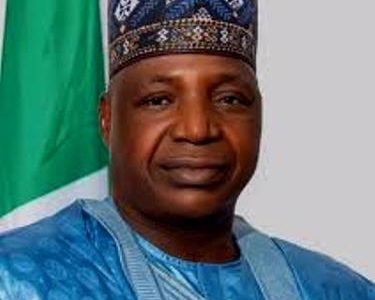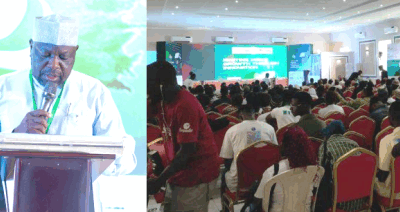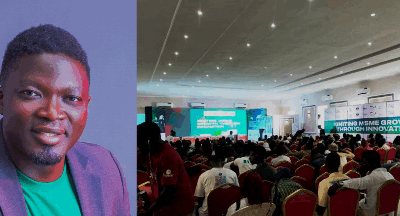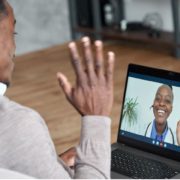CEO of Unique Solutions, Papa Njie, shares his plans for the Gambia’s ICT sector with SEGUN ORUAME, IT Edge News
Your company has just ended capacity training on mobile phones repair in partnership with rlg Communications of Ghana, what does this entail?
What happened is a combination of government having a vision that youth unemployment cannot be the order of the day. It
needs to be addressed in partnership with the private sector so a delegation was sent to Ghana by the government of Gambia
to look at areas that they could explore to address the problem be it tie and dye, designing, fishing, woodwork, metalwork,
handcraft, different areas. The delegation comprises of the Ministry of Trade under the Gambia Employment Programme, people
from the Labour Department, National Youth Council, Chambers of Commerce and a cross section of stakeholder from the
private sector. The delegation looked at the National Youth Employment Programme in Ghana which has an ICT component that
features a lot of rlg Communications’ activities and the Gambian delegation met Roland Agambire, the CEO of rlg
Communications and felt that if they could get partnership with rlg, they could exposed Gambian youths to the kind of
training that Ghanaian youths were already being exposed to. The training provides requisite skills in mobile phone
repair, maintenance and entrepreneurship for young Ghanaians so as to get them out of poverty, give them those skill for
them to get jobs. Some of these youths run their own business to repair phones, and sell phones and of course, some work
within the rlg assembly plant to assemble mobile phones. Of course, as you know rlg assembles mobile phones, laptops, LCD,
tablets, modems and digital electronic goods. In the Gambia, there was no rlg, and there was the the challenge of how do we
start a thing like that here. I paid my own way to get to Ghana because everybody talked about the problem side of it, so I
met Roland and I was inspired because in me I saw Roland, we have so many similarities from our background in term of how
we started. We started by repairing computers and providing internet connection. Roland started the same way and I thought
if Roland can get this far, we as smaller people, no disrespect, we can get even further. We had an initial plan to get 25,
000 trained and then we scaled to 10, 000 because of budget constraint and because government will provide the budget.
Later, we scaled down to 5000 and then to 500. That was also too much and we went down to 50, and of course it didn’t make
business sense, but Roland and myself thought the end game was more important than what we will take home at the end of the
day as the training companies. We felt that making a difference in people’s lives was more important than the business
case, and once we do that the business side of it will come. Training 50 Gambians does not make economic sense but we
decided to take the challenge. We decided to take challenge and I said look we will add 20 based on the available fund and
then buy some equipment so at the end we had 70. So in the past six months, these young men and women have been trained on
a number of skills. Not everybody can be a mobile phone repairer, like I keep saying the background of these people were so
diverse, everybody had a story. We have persons who didn’t finish grade12 because they couldn’t pay school fees. We have
persons who finished grade12 but can’t get a living because they were not good enough; so many issues about them. Most
remarkable of all like in yesterday graduation, we had a guy who lost his father, he called to say he will come after the
funeral; he couldn’t miss the graduation ceremony because it means a lot to him. All these 70 young people have their
unique stories and they have all been giving a skill that would improve their lot. Everybody has a way to succeed if given
the chance, so we decided to take the bull by the horn and get the programme started. Even when the programme ended, we
took three guys on internship training, one of them from the 1st of September became a full time staff, and the other guys
I believe will also do the same. So at the end of the day we got a bunch of people who have repair skills and who have also
acquired entrepreneur skills. The challenge now is how are we going to make best use of these people over the next few
years or so?
So there is a partnership between Unique Solutions and rlg Communications for rlg Gambia Limited to be established?
Basically the original partnership was for rlg to send their trainers to train the 70 people and during that period we will
give rlg our own trainers for them to be trained, and people were identify from all area of the country so that if an
opportunity for training elsewhere came, we would have a train the trainer scheme in place. That was the initial
partnership. We had an MOU with rlg which was to pursue training of young Gambians, but of course we also had another
opportunity to train another 50 after this programme which we will do. You also mentioned rlg Gambia, rlg Gambia came as a
result of the relationship we had with rlg Ghana, so we decided to partner to bring rlg to the shores of the Gambia. So rlg
Gambia is going to be the commercial arm whereby these people trained now will enter rlg Gambia doors as mobile vendors,
repair and assembling guys, technical, sales and marketing. The plan is for rlg Gambia to roll out a portfolio of equipment
including tablets, phones, desktops, laptops, different models, LCDs and everything. And on top of that we will have
service, training centres and we will also put sales outlet right across the country. I think we want to do something that
Africa is not used to; when something is broken, you park it up; there is no maintenance culture. With rlg Gambia, we are
saying if there is a problem, come back, you will find a solution here, you can’t beat that.
Every part is locally arranged, so we are going to offer something uniquely able to serve in Africa, I am not saying
anything about other brands, but you and I know that if you bring something from America or Europe, and if there is a
problem, that is the end of it.
The market dynamics is bound to change. The ACE cable is here, I was speaking with the minister of communication and
information yesterday, and he was telling me that will redefine the market place as far as bandwidth and internet provision goes, you have been in this business for some time now, what is likely to change after now, are we going to see much input from the private sector now in terms of ownership of diffusion of the internet?
That is very important. I think the business model of the ACE cable from the onset tells you that things will change
because the government has started working with the private sector on a public/private partnership to make sure that the
benefit of the cable is not dominated by one party. So they have given us 51% shareholding, there are three mobile
operators in the private sector; we have Africell, Qcell and Comium, and then two ISPs, Netpage and Unique Solutions which
make up the 51% of the cable. Of course, there is a relationship which brought about this process to make sure that there
is a public/private partnership that we can call as a reference point in this part of the world. The public/private
partnership encourages open access which means that pricing will be more flexible: you are going to have retailers,
international gateways, ISPs, Mobile operators who will bring technology services whether voice, data, whatever it is, the
bottom line is the end users – the customers get to enjoy better value. In terms of what we envisage, we believe that it
will come some day and services will be better, current situation now is that we are depending on Senegal. Senegal passes
on the bandwidth to Gamtel who then passes it on to us. We manage to survive with the support of Gamtel but we all know it
could always be better. With our own landing point that the consortium control which is the 51% private sector; 20% Gamtel,
10% Gamcel and 19% capacity to be kept by government, maybe this is model that can help a lot of other African countries
in terms of public private partnership.
You are an operator in the Gambia ICT sector, when you look at where you are coming from and where you are now, what will you describe as the key challenges you are facing as an operator?
I think regulation is always an issue but we have to cope with the regulatory authority because moving from a monopoly
situation to a liberalized market is a huge and very strong achievement. So I think in PURA, we have a regulator who has to
face the challenges in not just the telecom sector but also electricity. But the regulator has clearly identified with the
aspiration of the industry. Take this ACE cable for special purpose vehicle. Right from the start, all the consortium
meetings are actually held at the regulator’s office. There are challenges but we think that if we are positive about it,
things will move in the right direction. The other issue is the issue of financing, these are multi million dollars
investment that need to be made and if you look at the size of the Gambia, at times you will wonder whether it makes sense
but of course we are businessmen, we don’t put our money without having an idea of what the returns will be. So the raising
of capital at times can be a challenge but we are sure that we at Unique Solutions in the past eleven years have grown in
leaps and bound because we believe that this country deserves the best market and like I told you, in the next six months
we will have a couple of 4G networks and the current 3G networks. At the end of the day, I will always say these are
challenges and at the same time they could be opportunities. You could mention the cost of energy, energy is available
unlike most African countries but the cost of rolling out these services can put one into a difficult situation. But I
believe through the ISP association, we are lobbying government to reduce the cost of energy so that at the end of the day
when the cable lands, nobody will have excuses of exploiting people. I must add that government gives priority to ICT
through the Gambia Investment Export Promotion with duty waivers, tax incentive and things like that; they want us to put
our money in these areas and they give us incentives to do that. So I am of the opinion that our direct investment in the
cable will benefit the people that make us wake up every day which is the Gambian people.
‘With rlg Gambia, we are saying if there is a problem, come back, you will find a solution here, you can’t beat that.’
‘Moving from a monopoly situation to a liberalized market is a huge and very strong achievement.’




























